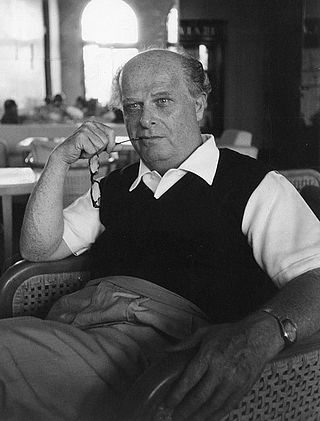
Olivetti S.p.A. is an Italian manufacturer of computers, tablets, smartphones, printers and other such business products as calculators and fax machines. Headquartered in Ivrea, in the Metropolitan City of Turin, the company has been part of the TIM Group since 2003. One of the first commercial programmable desktop calculators, the Programma 101, was produced by Olivetti in 1964 and was a commercial success.

The Italian Socialist Party was a socialist and later social-democratic political party in Italy, whose history stretched for longer than a century, making it one of the longest-living parties of the country.
An ethnic party is a political party that overtly presents itself as the champion of one ethnic group or sets of ethnic groups. Ethnic parties make such representation central to their voter mobilization strategy. An alternate designation is 'Political parties of minorities', but they should not be mistaken with regionalist or separatist parties, whose purpose is territorial autonomy.

Adriano Olivetti was an Italian engineer, politician, and industrialist whose entrepreneurial activity thrived on the idea that profit should be reinvested for the benefits of the whole society. He was son of the founder of Olivetti, Camillo Olivetti, and Luisa Revel, the daughter of a prominent Waldensian pastor and scholar. Adriano Olivetti was known worldwide during his lifetime as the Italian manufacturer of Olivetti typewriters, calculators, and computers.
The Victorian Socialist Party (VSP) was a socialist political party in the Australian state of Victoria during the early 20th century.

The Fasci Italiani di Combattimento was an Italian Fascist organization created by Benito Mussolini in 1919. It was the successor of the Fascio d'Azione Rivoluzionaria, being notably further right than its predecessor. The Fasci Italiani di Combattimento was reorganized into the National Fascist Party in 1921.

The 1968 Italian general election was held in Italy on 19 May 1968. The Christian Democracy (DC) remained stable around 38% of the votes. They were marked by a victory of the Communist Party (PCI) passing from 25% of 1963 to c. 30% at the Senate, where it presented jointly with the new Italian Socialist Party of Proletarian Unity (PSIUP), which included members of Socialist Party (PSI) which disagreed the latter's alliance with DC. PSIUP gained c. 4.5% at the Chamber. The Socialist Party and the Democratic Socialist Party (PSDI) presented together as the Unified PSI–PSDI, but gained c. 15%, far less than the sum of what the two parties had obtained separately in 1963.

The Fabian Society is a British socialist organisation whose purpose is to advance the principles of social democracy and democratic socialism via gradualist and reformist effort in democracies, rather than by revolutionary overthrow. The Fabian Society was also historically related to radicalism, a left-wing liberal tradition.
Angelo Oliviero Olivetti was an Italian lawyer, journalist, and political activist.

The Socialist Workers Network (SWN) is an Irish Trotskyist organisation.

The Communist Party is an anti-revisionist Marxist–Leninist communist party in Italy, founded in 2009. It defines itself as "the revolutionary political vanguard organization of the working class in Italy".

Communism in Kerala refers to the strong presence of communist ideas in the Indian state of Kerala. In addition to Kerala, the Indian states of West Bengal and Tripura have had multiple democratically elected Marxist governments, and change takes place in the government by regular multiparty electoral processes. The communism of Kerala has provided Indian communist stalwarts such as M. N. Govindan Nair, C. Achutha Menon, K. Damodaran, T. V. Thomas, N. E. Balaram, E. M. S. Namboodiripad, A. K. Gopalan, K. R. Gouri Amma, P. K. Vasudevan Nair and C. K. Chandrappan.

The South American Union of Italian Emigrants is an Italian political party representing Italian minorities in South America, especially Argentina and Brazil.
The Pentapartito, commonly shortened to CAF, refers to the coalition government of five Italian political parties that formed between June 1981 and April 1991. The coalition comprised the Christian Democracy (DC), the Italian Socialist Party (PSI), Italian Democratic Socialist Party (PSDI), Italian Liberal Party (PLI) and Italian Republican Party (PRI).
Labor Zionism or socialist Zionism refers to the left-wing, socialist variation of Zionism. For many years, it was the most significant tendency among Zionists and Zionist organizations, and was seen as the Zionist sector of the historic Jewish labor movements of Eastern Europe and Central Europe, eventually developing local units in most countries with sizable Jewish populations. Unlike the "political Zionist" tendency founded by Theodor Herzl and advocated by Chaim Weizmann, Labor Zionists did not believe that a Jewish state would be created by simply appealing to the international community or to powerful nations such as the United Kingdom, Germany, or the former Ottoman Empire. Rather, they believed that a Jewish state could only be created through the efforts of the Jewish working class making aliyah to the Land of Israel and raising a country through the creation of a Labor Jewish society with rural kibbutzim and moshavim, and an urban Jewish Proletariat.
Comunità was a cultural magazine published in Rome, Italy. The magazine was in circulation between 1946 and 1960.

Tomaso Smith was an Italian screenwriter, politician, journalist, translator and newspaper editor active during the Fascist era. He started his career as a stringer for the Roman newspaper Il Messaggero but was forced to resign for his socialist stance. He then embarked on a career as screenwriter and playwright until the outbreak of the War. Smith was imprisoned in a German detention camp in Italy in 1943 but was able to escape. At the end of the war Il Messaggero offered him the editor's post. In the 1950s he began a career in politics, first as an independent with the Italian Communist Party and then with Adriano Olivetti's Community Movement, where he was involved in attempts to start a newspaper, La Giustizia ("Justice").
Socialism in Italy is a political movement that developed during the Industrial Revolution over a course of 120 years, which came to a head during the Revolutions of 1848. At the beginning of the 20th century, there were a growing number of social changes. The outbreak of the First World War accelerated economic differentiation causing a wider wealth gap. This is seen as one of the key factors that triggered the emergence of Italian socialism.

Leopoldo Piccardi was an Italian politician and civil servant, who served as Ministry of Industry and Commerce of the Badoglio I Cabinet, the first after the fall of the regime. After the war he became a founding member and secretary of the Radical Party until a scandal over his participation in anti-Semitist conferences during the Fascist period forced him to resign.












